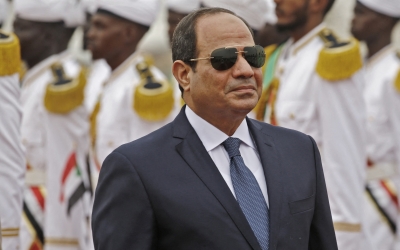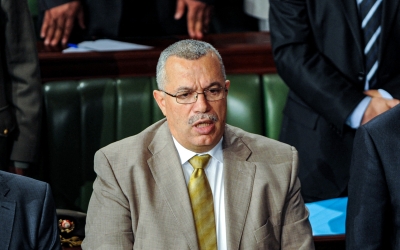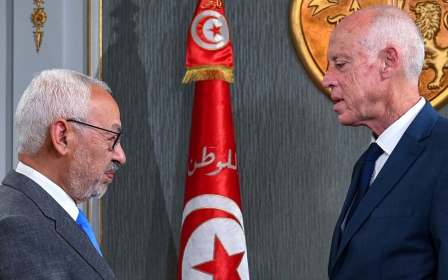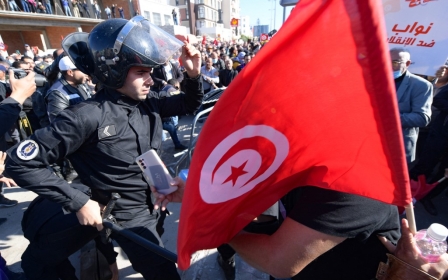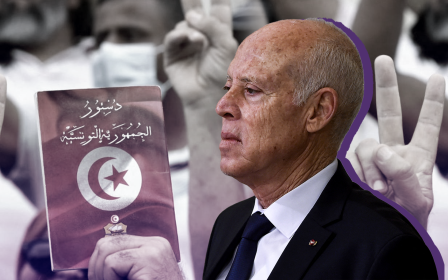Tunisia: Egyptian intelligence officer plotting crackdown on Ennahda party
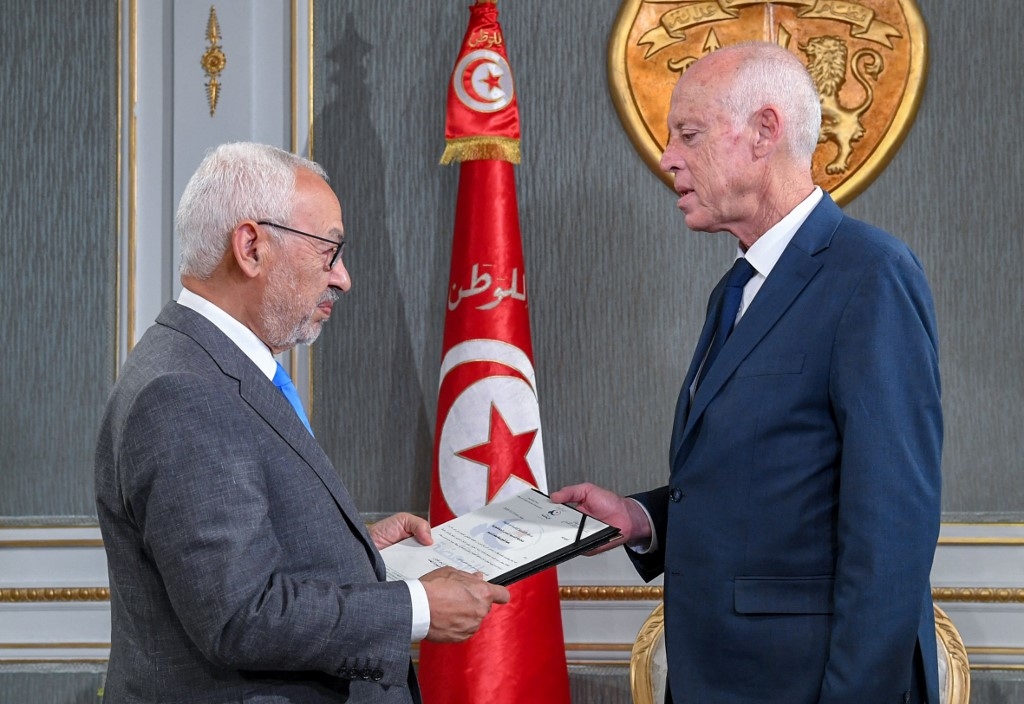
A senior Egyptian intelligence officer, who is liaising with Tunisia's Presidential Security, is preparing plans to crack down on the Ennahda party, two sources told Middle East Eye.
Colonel Ali Mohamed al-Farran, a member of the Egyptian intelligence service, is plotting to "replicate the Egyptian experience”, one source told MEE, referring to the clampdown on the Muslim Brotherhood in Egypt in the aftermath of the 2013 military coup.
MEE understands that Farran, who is in charge of the "Tunisian file", has been working closely with Khaled al-Yahyaoui, the director-general of the Presidential Security and an adviser to President Kais Saied.
Farran, who previously played an important role in military operations in Arish in North Sinai, has been given unrestricted access to Tunisia, sources told MEE.
Ennahda, a self-described Muslim-democratic party, had the largest number of seats in the Tunisian parliament before it was effectively dissolved by Saied in July as part of power grab measures, which critics labelled a coup.
Saied seized power, in a plot leaked to MEE, citing skyrocketing unemployment, rampant corruption and the coronavirus pandemic as reasons to suspend parliament, sack Prime Minister Hichem Mechichi, and grant himself prosecutorial powers.
Multiple sources confirmed to MEE that Egyptian security officials, who had been advising Saied before the coup and directing operations as it was taking place, were present in the presidential palace at the time.
"[Egyptian President Abdel Fattah el-] Sisi offered to give Saied all the support he needed for the coup and Saied took it," one of the sources told MEE in July.
"Egyptian military and security people were sent to Tunisia with the full support of MbZ [Mohammed bin Zayed, the crown prince of Abu Dhabi]," the source added.
MEE reached out to the Egyptian embassy in London but did not receive a response by the time of publication.
Targeting opponents
Since seizing power in Tunisia, Saied has closely followed a plan drafted by his close advisers in May and revealed by MEE at the time.
Under the plan, Saied would declare a "constitutional dictatorship" which the authors of the document say is a tool for "concentrating all powers in the hand of the President of the Republic".
Later, political opponents would be placed under house arrest, including “from the Ennahda Movement... Noureddine Bhiri, Rafiq Abd el-Salam, Karim Harouni, Said Ferjani,” among others.
Bhiri, Ennahda’s deputy head, was arrested on 31 December by plainclothes police officers outside his home in Tunis and later accused of possible "terrorism" offences.
The ex-justice minister, who suffers from several pre-existing health conditions, was hospitalised two days after his arrest.
Human Rights Watch denounced his "abduction-style detention" as a demonstration of "the growing threat to human rights protections since President Saied’s power grab."
This article is available in French on Middle East Eye French edition.
Middle East Eye propose une couverture et une analyse indépendantes et incomparables du Moyen-Orient, de l’Afrique du Nord et d’autres régions du monde. Pour en savoir plus sur la reprise de ce contenu et les frais qui s’appliquent, veuillez remplir ce formulaire [en anglais]. Pour en savoir plus sur MEE, cliquez ici [en anglais].


